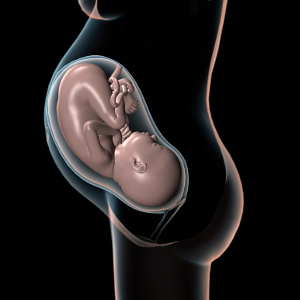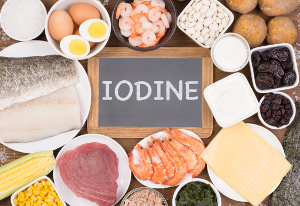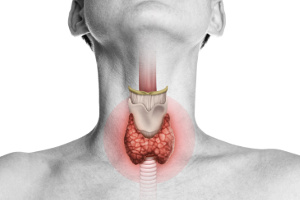afterLoad (456.31KB) (3.48ms)
afterInitialise (1.27MB) (43.85ms)
afterRoute (870.38KB) (17.92ms)
beforeRenderComponent com_tags (20.85KB) (253μs)
afterRenderComponent com_tags (1.35MB) (129ms)
afterDispatch (31.41KB) (5.96ms)
beforeRenderRawModule mod_articles_category (READ MORE...) (388.12KB) (18.17ms)
Before Access::preloadComponents (all components) (56.7KB) (429μs)
After Access::preloadComponents (all components) (103.05KB) (2.27ms)
Before Access::getAssetRules (id:8 name:com_content) (840B) (15μs)
After Access::getAssetRules (id:8 name:com_content) (7.05KB) (35μs)
afterRenderRawModule mod_articles_category (READ MORE...) (5.7KB) (119ms)
beforeRenderRawModule mod_tags_popular (Search) (4.81KB) (23μs)
afterRenderRawModule mod_tags_popular (Search) (2.72KB) (102ms)
beforeRenderRawModule mod_custom (Remember to download Heart Healthy Seniors) (816B) (28μs)
afterRenderRawModule mod_custom (Remember to download Heart Healthy Seniors) (4.86KB) (205μs)
beforeRenderRawModule mod_custom (Get additionel and more detailed knowledge ) (752B) (12μs)
afterRenderRawModule mod_custom (Get additionel and more detailed knowledge ) (1.67KB) (25μs)
beforeRenderRawModule mod_custom (BOOST YOUR IMMUNE DEFENSE) (608B) (9μs)
afterRenderRawModule mod_custom (BOOST YOUR IMMUNE DEFENSE) (928B) (20μs)
beforeRenderRawModule mod_custom (Are you taking supplements) (736B) (8μs)
afterRenderRawModule mod_custom (Are you taking supplements) (1.03KB) (16μs)
beforeRenderRawModule mod_custom (Antiaging) (720B) (8μs)
afterRenderRawModule mod_custom (Antiaging) (1.02KB) (16μs)
beforeRenderRawModule mod_custom (Exercise) (720B) (8μs)
afterRenderRawModule mod_custom (Exercise) (1.02KB) (17μs)
beforeRenderRawModule mod_custom (Check this before you buy a Q10 product) (752B) (8μs)
afterRenderRawModule mod_custom (Check this before you buy a Q10 product) (944B) (17μs)
beforeRenderRawModule mod_custom (Chronic fatigue tied Alan to his bed but Q10 capsules saved him:) (245.53KB) (5.04ms)
afterRenderRawModule mod_custom (Chronic fatigue tied Alan to his bed but Q10 capsules saved him:) (960B) (40μs)
beforeRenderModule mod_custom (Chronic fatigue tied Alan to his bed but Q10 capsules saved him:) (768B) (4μs)
afterRenderModule mod_custom (Chronic fatigue tied Alan to his bed but Q10 capsules saved him:) (1.3KB) (58μs)
beforeRenderRawModule mod_custom (Cholesterol-lowering without side effects:) (368B) (11μs)
afterRenderRawModule mod_custom (Cholesterol-lowering without side effects:) (2.19KB) (21μs)
beforeRenderModule mod_custom (Cholesterol-lowering without side effects:) (752B) (2μs)
afterRenderModule mod_custom (Cholesterol-lowering without side effects:) (1.28KB) (27μs)
beforeRenderModule mod_articles_category (READ MORE...) (21.32KB) (320μs)
afterRenderModule mod_articles_category (READ MORE...) (1.25KB) (37μs)
beforeRenderModule mod_tags_popular (Search) (5.17KB) (13μs)
afterRenderModule mod_tags_popular (Search) (1.27KB) (23μs)
beforeRenderModule mod_custom (Remember to download Heart Healthy Seniors) (1.17KB) (10μs)
afterRenderModule mod_custom (Remember to download Heart Healthy Seniors) (1.3KB) (20μs)
beforeRenderModule mod_custom (Get additionel and more detailed knowledge ) (368B) (8μs)
afterRenderModule mod_custom (Get additionel and more detailed knowledge ) (1.3KB) (19μs)
beforeRenderModule mod_custom (BOOST YOUR IMMUNE DEFENSE) (224B) (8μs)
afterRenderModule mod_custom (BOOST YOUR IMMUNE DEFENSE) (1.28KB) (19μs)
beforeRenderModule mod_custom (Are you taking supplements) (352B) (8μs)
afterRenderModule mod_custom (Are you taking supplements) (1.28KB) (18μs)
beforeRenderModule mod_custom (Antiaging) (336B) (8μs)
afterRenderModule mod_custom (Antiaging) (1.27KB) (18μs)
beforeRenderModule mod_custom (Exercise) (336B) (8μs)
afterRenderModule mod_custom (Exercise) (1.25KB) (18μs)
beforeRenderModule mod_custom (Check this before you buy a Q10 product) (352B) (8μs)
afterRenderModule mod_custom (Check this before you buy a Q10 product) (1.28KB) (18μs)
beforeRenderRawModule mod_menu (Main menu-US) (20.94KB) (827μs)
afterRenderRawModule mod_menu (Main menu-US) (152.66KB) (3.28ms)
beforeRenderModule mod_menu (Main menu-US) (720B) (4μs)
afterRenderModule mod_menu (Main menu-US) (4.36KB) (50μs)
beforeRenderRawModule mod_languages (Sprogskift) (3.44KB) (15μs)
afterRenderRawModule mod_languages (Sprogskift) (90.81KB) (1.43ms)
beforeRenderModule mod_languages (Sprogskift) (720B) (5μs)
afterRenderModule mod_languages (Sprogskift) (5.31KB) (19μs)
beforeRenderRawModule mod_finder () (6.34KB) (10μs)
afterRenderRawModule mod_finder () (150.16KB) (3.38ms)
beforeRenderModule mod_finder () (704B) (4μs)
afterRenderModule mod_finder () (5.79KB) (31μs)
beforeRenderRawModule mod_custom () (6.62KB) (128μs)
afterRenderRawModule mod_custom () (22.64KB) (1.78ms)
beforeRenderModule mod_custom () (704B) (5μs)
afterRenderModule mod_custom () (1.23KB) (48μs)
beforeRenderRawModule mod_menu (Main menu-US) (5.07KB) (94μs)
afterRenderRawModule mod_menu (Main menu-US) (5.8KB) (570μs)
beforeRenderModule mod_menu (Main menu-US) (720B) (3μs)
afterRenderModule mod_menu (Main menu-US) (1.25KB) (40μs)
beforeRenderRawModule mod_languages (Sprogskift Mobil) (912B) (14μs)
afterRenderRawModule mod_languages (Sprogskift Mobil) (3.89KB) (589μs)
beforeRenderModule mod_languages (Sprogskift Mobil) (720B) (3μs)
afterRenderModule mod_languages (Sprogskift Mobil) (1.27KB) (28μs)
beforeRenderRawModule mod_finder () (2.3KB) (8μs)
afterRenderRawModule mod_finder () (6.29KB) (2.51ms)
beforeRenderModule mod_finder () (704B) (4μs)
afterRenderModule mod_finder () (1.23KB) (42μs)
beforeRenderRawModule mod_custom () (8.66KB) (161μs)
afterRenderRawModule mod_custom () (904B) (123μs)
beforeRenderModule mod_custom () (704B) (3μs)
afterRenderModule mod_custom () (2.43KB) (23μs)
beforeRenderRawModule mod_custom () (688B) (71μs)
afterRenderRawModule mod_custom () (896B) (85μs)
beforeRenderModule mod_custom () (704B) (2μs)
afterRenderModule mod_custom () (2.71KB) (19μs)
afterRender (225.71KB) (7.13ms)
| 1 x afterRenderComponent com_tags (1.35MB) (27.45%) | 129.26ms |
| 1 x afterRenderRawModule mod_articles_category (READ MORE...) (5.7KB) (25.17%) | 118.54ms |
| 1 x afterRenderRawModule mod_tags_popular (Search) (2.72KB) (21.57%) | 101.57ms |
| 1 x afterInitialise (1.27MB) (9.31%) | 43.85ms |
| 1 x beforeRenderRawModule mod_articles_category (READ MORE...) (388.12KB) (3.86%) | 18.17ms |
| 1 x afterRoute (870.38KB) (3.8%) | 17.92ms |
| 1 x afterRender (225.71KB) (1.51%) | 7.13ms |
| 1 x afterDispatch (31.41KB) (1.27%) | 5.96ms |
| 1 x beforeRenderRawModule mod_custom (Chronic fatigue tied Alan to his bed but Q10 capsules saved him:) (245.53KB) (1.07%) | 5.04ms |
| 1 x afterLoad (456.31KB) (0.74%) | 3.48ms |
| 1 x afterRenderRawModule mod_finder () (150.16KB) (0.72%) | 3.38ms |
| 1 x afterRenderRawModule mod_menu (Main menu-US) (152.66KB) (0.7%) | 3.28ms |
| 1 x afterRenderRawModule mod_finder () (6.29KB) (0.53%) | 2.51ms |
| 1 x After Access::preloadComponents (all components) (103.05KB) (0.48%) | 2.27ms |
| 1 x afterRenderRawModule mod_custom () (22.64KB) (0.38%) | 1.78ms |
| 1 x afterRenderRawModule mod_languages (Sprogskift) (90.81KB) (0.3%) | 1.43ms |
| 1 x beforeRenderRawModule mod_menu (Main menu-US) (20.94KB) (0.18%) | 827μs |
| 1 x afterRenderRawModule mod_languages (Sprogskift Mobil) (3.89KB) (0.13%) | 589μs |
| 1 x afterRenderRawModule mod_menu (Main menu-US) (5.8KB) (0.12%) | 570μs |
| 1 x Before Access::preloadComponents (all components) (56.7KB) (0.09%) | 429μs |
| 1 x beforeRenderModule mod_articles_category (READ MORE...) (21.32KB) (0.07%) | 320μs |
| 1 x beforeRenderComponent com_tags (20.85KB) (0.05%) | 253μs |
| 1 x afterRenderRawModule mod_custom (Remember to download Heart Healthy Seniors) (4.86KB) (0.04%) | 205μs |
| 1 x beforeRenderRawModule mod_custom () (8.66KB) (0.03%) | 161μs |
| 1 x beforeRenderRawModule mod_custom () (6.62KB) (0.03%) | 128μs |
| 1 x afterRenderRawModule mod_custom () (904B) (0.03%) | 123μs |
| 1 x beforeRenderRawModule mod_menu (Main menu-US) (5.07KB) (0.02%) | 94μs |
| 1 x afterRenderRawModule mod_custom () (896B) (0.02%) | 85μs |
| 1 x beforeRenderRawModule mod_custom () (688B) (0.02%) | 71μs |
| 1 x afterRenderModule mod_custom (Chronic fatigue tied Alan to his bed but Q10 capsules saved him:) (1.3KB) (0.01%) | 58μs |
| 1 x afterRenderModule mod_menu (Main menu-US) (4.36KB) (0.01%) | 50μs |
| 1 x afterRenderModule mod_custom () (1.23KB) (0.01%) | 48μs |
| 1 x afterRenderModule mod_finder () (1.23KB) (0.01%) | 42μs |
| 1 x afterRenderModule mod_menu (Main menu-US) (1.25KB) (0.01%) | 40μs |
| 1 x afterRenderRawModule mod_custom (Chronic fatigue tied Alan to his bed but Q10 capsules saved him:) (960B) (0.01%) | 40μs |
| 1 x afterRenderModule mod_articles_category (READ MORE...) (1.25KB) (0.01%) | 37μs |
| 1 x After Access::getAssetRules (id:8 name:com_content) (7.05KB) (0.01%) | 35μs |
| 1 x afterRenderModule mod_finder () (5.79KB) (0.01%) | 31μs |
| 1 x beforeRenderRawModule mod_custom (Remember to download Heart Healthy Seniors) (816B) (0.01%) | 28μs |
| 1 x afterRenderModule mod_languages (Sprogskift Mobil) (1.27KB) (0.01%) | 28μs |
| 1 x afterRenderModule mod_custom (Cholesterol-lowering without side effects:) (1.28KB) (0.01%) | 27μs |
| 1 x afterRenderRawModule mod_custom (Get additionel and more detailed knowledge ) (1.67KB) (0.01%) | 25μs |
| 1 x afterRenderModule mod_tags_popular (Search) (1.27KB) (0%) | 23μs |
| 1 x beforeRenderRawModule mod_tags_popular (Search) (4.81KB) (0%) | 23μs |
| 1 x afterRenderModule mod_custom () (2.43KB) (0%) | 23μs |
| 1 x afterRenderRawModule mod_custom (Cholesterol-lowering without side effects:) (2.19KB) (0%) | 21μs |
| 1 x afterRenderRawModule mod_custom (BOOST YOUR IMMUNE DEFENSE) (928B) (0%) | 20μs |
| 1 x afterRenderModule mod_custom (Remember to download Heart Healthy Seniors) (1.3KB) (0%) | 20μs |
| 1 x afterRenderModule mod_custom (Get additionel and more detailed knowledge ) (1.3KB) (0%) | 19μs |
| 1 x afterRenderModule mod_custom (BOOST YOUR IMMUNE DEFENSE) (1.28KB) (0%) | 19μs |
| 1 x afterRenderModule mod_languages (Sprogskift) (5.31KB) (0%) | 19μs |
| 1 x afterRenderModule mod_custom () (2.71KB) (0%) | 19μs |
| 1 x afterRenderModule mod_custom (Are you taking supplements) (1.28KB) (0%) | 18μs |
| 1 x afterRenderModule mod_custom (Antiaging) (1.27KB) (0%) | 18μs |
| 1 x afterRenderModule mod_custom (Exercise) (1.25KB) (0%) | 18μs |
| 1 x afterRenderModule mod_custom (Check this before you buy a Q10 product) (1.28KB) (0%) | 18μs |
| 1 x afterRenderRawModule mod_custom (Exercise) (1.02KB) (0%) | 17μs |
| 1 x afterRenderRawModule mod_custom (Check this before you buy a Q10 product) (944B) (0%) | 17μs |
| 1 x afterRenderRawModule mod_custom (Are you taking supplements) (1.03KB) (0%) | 16μs |
| 1 x afterRenderRawModule mod_custom (Antiaging) (1.02KB) (0%) | 16μs |
| 1 x Before Access::getAssetRules (id:8 name:com_content) (840B) (0%) | 15μs |
| 1 x beforeRenderRawModule mod_languages (Sprogskift) (3.44KB) (0%) | 15μs |
| 1 x beforeRenderRawModule mod_languages (Sprogskift Mobil) (912B) (0%) | 14μs |
| 1 x beforeRenderModule mod_tags_popular (Search) (5.17KB) (0%) | 13μs |
| 1 x beforeRenderRawModule mod_custom (Get additionel and more detailed knowledge ) (752B) (0%) | 12μs |
| 1 x beforeRenderRawModule mod_custom (Cholesterol-lowering without side effects:) (368B) (0%) | 11μs |
| 1 x beforeRenderModule mod_custom (Remember to download Heart Healthy Seniors) (1.17KB) (0%) | 10μs |
| 1 x beforeRenderRawModule mod_finder () (6.34KB) (0%) | 10μs |
| 3 x beforeRenderModule mod_custom () (704B) (0%) | 10μs |
| 1 x beforeRenderRawModule mod_custom (BOOST YOUR IMMUNE DEFENSE) (608B) (0%) | 9μs |
| 1 x beforeRenderRawModule mod_custom (Are you taking supplements) (736B) (0%) | 8μs |
| 1 x beforeRenderRawModule mod_custom (Antiaging) (720B) (0%) | 8μs |
| 1 x beforeRenderModule mod_custom (Are you taking supplements) (352B) (0%) | 8μs |
| 1 x beforeRenderModule mod_custom (Antiaging) (336B) (0%) | 8μs |
| 1 x beforeRenderModule mod_custom (Exercise) (336B) (0%) | 8μs |
| 1 x beforeRenderModule mod_custom (Check this before you buy a Q10 product) (352B) (0%) | 8μs |
| 1 x beforeRenderRawModule mod_finder () (2.3KB) (0%) | 8μs |
| 1 x beforeRenderRawModule mod_custom (Exercise) (720B) (0%) | 8μs |
| 1 x beforeRenderRawModule mod_custom (Check this before you buy a Q10 product) (752B) (0%) | 8μs |
| 1 x beforeRenderModule mod_custom (Get additionel and more detailed knowledge ) (368B) (0%) | 8μs |
| 1 x beforeRenderModule mod_custom (BOOST YOUR IMMUNE DEFENSE) (224B) (0%) | 8μs |
| 2 x beforeRenderModule mod_finder () (704B) (0%) | 8μs |
| 2 x beforeRenderModule mod_menu (Main menu-US) (720B) (0%) | 7μs |
| 1 x beforeRenderModule mod_languages (Sprogskift) (720B) (0%) | 5μs |
| 1 x beforeRenderModule mod_custom (Chronic fatigue tied Alan to his bed but Q10 capsules saved him:) (768B) (0%) | 4μs |
| 1 x beforeRenderModule mod_languages (Sprogskift Mobil) (720B) (0%) | 3μs |
| 1 x beforeRenderModule mod_custom (Cholesterol-lowering without side effects:) (752B) (0%) | 2μs |
 Iodine is involved in the body’s production of thyroid hormones, and we humans need plenty of iodine throughout life, especially during periods such as fetal development and child development. Iodine is also important for brain development and cognitive skills. Severe iodine deficiency during pregnancy and during a child’s first years of life may result in stunted growth and/or mental retardation, but there has been uncertainty about how a minor iodine deficiency affects the child before and after birth. In a review article that is published in Nutrients, the authors look closer at iodine’s role in fertility and child growth. Apparently, iodine deficiencies are quite common, and we even need selenium and other nutrients to secure a well-functioning thyroid gland.
Iodine is involved in the body’s production of thyroid hormones, and we humans need plenty of iodine throughout life, especially during periods such as fetal development and child development. Iodine is also important for brain development and cognitive skills. Severe iodine deficiency during pregnancy and during a child’s first years of life may result in stunted growth and/or mental retardation, but there has been uncertainty about how a minor iodine deficiency affects the child before and after birth. In a review article that is published in Nutrients, the authors look closer at iodine’s role in fertility and child growth. Apparently, iodine deficiencies are quite common, and we even need selenium and other nutrients to secure a well-functioning thyroid gland.







 Veganism is on the rise, and experts have different views on whether or not plant-diets are suited for children. A team of Polish scientists has now discovered that children on vegan diets have low stature and lower bone density than children who eat meat and dairy products. Children on vegan diets also are also more likely to lack amino acids, vitamin B12, vitamin D, vitamin A, iron, selenium, iodine, and the omega-3 fatty acid DHA (docosahexaenoic acid). It is particularly important for growing children to get enough nutrients to support their muscles, bones, brain, and a variety of enzyme processes. Also, children on vegan diets should be given relevant supplements to compensate for their shortcomings.
Veganism is on the rise, and experts have different views on whether or not plant-diets are suited for children. A team of Polish scientists has now discovered that children on vegan diets have low stature and lower bone density than children who eat meat and dairy products. Children on vegan diets also are also more likely to lack amino acids, vitamin B12, vitamin D, vitamin A, iron, selenium, iodine, and the omega-3 fatty acid DHA (docosahexaenoic acid). It is particularly important for growing children to get enough nutrients to support their muscles, bones, brain, and a variety of enzyme processes. Also, children on vegan diets should be given relevant supplements to compensate for their shortcomings. The Russian invasion of Ukraine has increased the fear of nuclear warfare or radioactive leaks from local nuclear power plants. For that reason, many people have purchased iodine tablets to protect themselves from radioactive contamination. Being relatively close to a radioactive leak creates a sudden need for very large intake of iodine. It is important to realize, however, that the thyroid gland can only store iodine for a limited period of time and it can be dangerous to take extreme doses of iodine. Therefore, it makes no sense to take mega-doses as a preventive measure. On the other hand, it looks as if iodine deficiencies are rather common. Furthermore, we do need a certain amount of iodine to support the thyroid function, estrogen balance, and a number of other things. The question is how much iodine do we need on a day-to-day basis and how much do we need in the case of being exposed to radioactive radiation?
The Russian invasion of Ukraine has increased the fear of nuclear warfare or radioactive leaks from local nuclear power plants. For that reason, many people have purchased iodine tablets to protect themselves from radioactive contamination. Being relatively close to a radioactive leak creates a sudden need for very large intake of iodine. It is important to realize, however, that the thyroid gland can only store iodine for a limited period of time and it can be dangerous to take extreme doses of iodine. Therefore, it makes no sense to take mega-doses as a preventive measure. On the other hand, it looks as if iodine deficiencies are rather common. Furthermore, we do need a certain amount of iodine to support the thyroid function, estrogen balance, and a number of other things. The question is how much iodine do we need on a day-to-day basis and how much do we need in the case of being exposed to radioactive radiation?
 PFAS (per- and polyfluoroalkyl substances) are found in building materials, textiles, kitchen utensils, foam from fire extinguishers, and cosmetics. The compounds have even been found in certain foods. The massive PFAS pollution may impair the body’s ability to utilize iodine, especially by affecting thyroid hormones that are essential for our metabolism, according to an article published in Molecular and Cellular Endocrinology. Daily exposure to PFAS may also increase the risk of fetal damage, poor liver function, breast cancer, and other diseases. It also appears that PFAS poisoning increases the need for iodine.
PFAS (per- and polyfluoroalkyl substances) are found in building materials, textiles, kitchen utensils, foam from fire extinguishers, and cosmetics. The compounds have even been found in certain foods. The massive PFAS pollution may impair the body’s ability to utilize iodine, especially by affecting thyroid hormones that are essential for our metabolism, according to an article published in Molecular and Cellular Endocrinology. Daily exposure to PFAS may also increase the risk of fetal damage, poor liver function, breast cancer, and other diseases. It also appears that PFAS poisoning increases the need for iodine. There is a trending global shift towards vegetarian or vegan diets. However, these diets come with a risk of lacking essential nutrients that are primarily found in animal food sources. According to a large meta-analysis of Western diets, one of them is iodine. Iodine deficiency is a worldwide problem and has serious consequences because of iodine’s vital role in the thyroid function, energy production, estrogen balance, fertility, and healthy pregnancy outcome.
There is a trending global shift towards vegetarian or vegan diets. However, these diets come with a risk of lacking essential nutrients that are primarily found in animal food sources. According to a large meta-analysis of Western diets, one of them is iodine. Iodine deficiency is a worldwide problem and has serious consequences because of iodine’s vital role in the thyroid function, energy production, estrogen balance, fertility, and healthy pregnancy outcome. "After about one week of taking the Q10 supplement I could feel a huge difference," says 23-year old Alan Piccini, who has been suffering from extreme fatigue and muscle aches ever since he was a child.
"After about one week of taking the Q10 supplement I could feel a huge difference," says 23-year old Alan Piccini, who has been suffering from extreme fatigue and muscle aches ever since he was a child. “Taking capsules with co-enzyme Q10 has freed me of the severe side effects of my cholesterol lowering medicine,” Mrs Franken explains.
“Taking capsules with co-enzyme Q10 has freed me of the severe side effects of my cholesterol lowering medicine,” Mrs Franken explains.